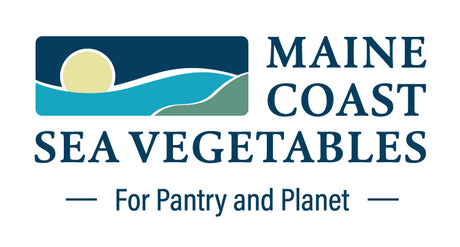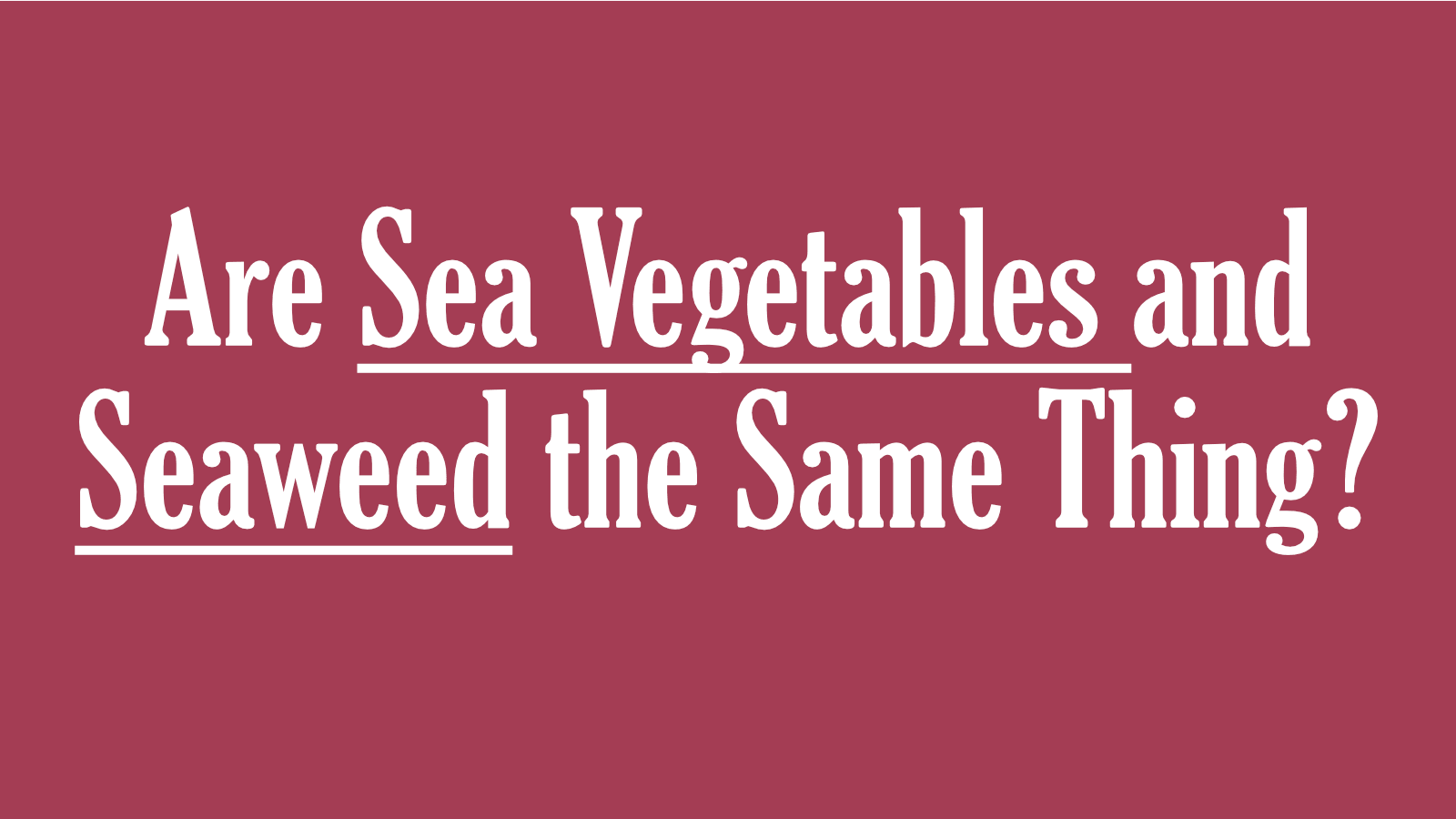It can be confusing when reading about foods like dulse, Irish moss, or kelp because sometimes they are referred to as seaweed and other times, they are described as sea vegetables. So, which one is correct? Are they sea vegetables or are they seaweeds? Here at Maine Coast Sea Vegetables, we are guilty of using the words interchangeably, possibly adding to the confusion.
Sea vegetables are in fact seaweeds, but not every seaweed is a sea vegetable. Sea vegetables are name for a large variety of oceanic edible macroalgae that are wild harvested or farmed for the purpose of human consumption, whereas seaweed is the common name for all oceanic edible and non-edible macroalgae.
When we use the word seaweed over sea vegetable to describe the foods we sell, it’s usually in the context of getting a larger audience to understand what we are talking about. According to Google, for every person searching for “sea vegetables” in the popular search engine; 72 people are instead searching for “seaweed.” Unfortunately, this means at least for now, the term “sea vegetables” has not been fully adopted as a way to describe these wonderful foods from the sea.
So why call them “sea vegetables” if “seaweed” is more readily used?
We call these foods sea vegetables for a couple reasons. Firstly, we believe these foods are vegetables even though they are not all plants. Secondly, we believe sea-weed to be a little derogatory towards macroalgae and inaccurate way to describe these foods.
The definition of weed is “a wild plant growing where it is not wanted and in competition with cultivated plants.” There are two problems with this definition for sea vegetables.
1) The definition for weed implies that they are plants. While some macroalgae such as Chlorophyta are plants, most sea vegetables are actually not classified as plants even though they are all chlorophyll producing organisms. Based on new genetic research, we now know humans are more closely related to mushrooms (fungi) than brown seaweeds (ex. rockeed or kelp) are to plants!

2) The definition for weed implies that these foods are not wanted and take the space of something more desirable. If it were true that macroalgae are not wanted, we would have been out of business in 1971 when we started selling sea vegetables! Seaweed has been a food for humans for thousands of years, and interest is stronger than ever! New farms are popping up every day to support the growing demand for sea vegetables.
In summary, sea vegetable is the more appropriate name used to describe all of the wonderful and nutritious foods that we sell from the ocean, but seaweed is still what most people know them as. Until the day the term “sea vegetables” is widely adopted, it’s a reality that seaweed and sea vegetables are going to be used interchangeably.


